Guest Post by Governor William Bradford of the Plymouth Settlement, as presented primarily in his account of the adventures of the Pilgrims titled Of Plymouth Plantation, and paraphrased by B. Nathaniel Sullivan
—A New Thanksgiving Bible Study—
Once you’ve read this account, you’ll know what the Pilgrims experienced from 1621-1623 during their experiment in socialism. Still, even though history is important, knowing it isn’t enough. Christians primarily need to know what God says in His Word. You’re invited to dive into God’s Word with the new Thanksgiving Bible study “Thank God for Free Enterprise!” The study examines biblical teachings about money and economic systems against the backdrop of what happened at Plymouth. You can access it here.
A PDF copy of this article is available here.
A discussion guide for families and friends to use as they explore the events described in this article is available here.
Hear an audio presentation of this post, read by Micah Sample. Currently, you also can download it free of charge. You may reproduce it as it is presented here (without changes) and share it with others this Thanksgiving.
1623
Our situation was dire—a matter of life and death. For two years we had sought to produce our food on the land we had found in the New World. Thankfully we were able to forge an alliance with the Indian tribe nearby. Also, God gave us a special Indian friend in Squanto, who lived among us and helped us in ways we couldn’t have imagined.1

Some background information might help you better understand our situation. Our congregation of believers left England and moved to Holland so we would be able to worship God freely; then, after 11 or so years, we felt compelled to leave Holland because we were concerned about how the culture was affecting our children. We departed for the New World in 1620, and later in the year than we ideally would have due to circumstances beyond our control. Our arrival here came after a rough ocean crossing on the Mayflower. We landed at Cape Cod in the New World on November 11, 1620. Before we even began to explore the land, we knew there was an important matter of business we had to address.
The Mayflower Compact
We were keenly aware that chaos would erupt if we didn’t live together in harmony, so we drafted what is now known as The Mayflower Compact. It was our statement that we would unite in one “Civil Body Politic” and obey the laws that were enacted. Unity and harmony had to be preserved. If we didn’t stick together, we wouldn’t survive!
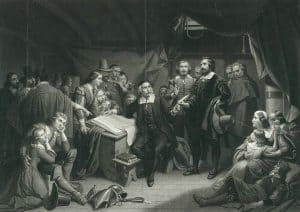
Even with God’s help, this wasn’t going to be easy—not by a long shot. Remember, none of us ever had been here before, nor had anyone else we knew. We had no friends to welcome us, nor were there any hotels to check into so we could rest and recover from our difficult voyage across the ocean. Moreover, winter’s cold winds and icy storms were about to bear down upon us! Not only that, but the land before us was more than unfamiliar. It was desolate and inhabited by wild animals, and, quite probably, wild men as well!2
A Brutal Winter
The winter of 1621 was especially cruel. Of our party of about 102, half died.3,4 My beloved wife Dorothy was one of the first. You can read their names and the dates of their deaths (as best we’ve been able to record them) on this timeline.
When winter was over and spring at last had arrived, God blessed us with an alliance with the neighboring Indians. One of them, Squanto, whom I mentioned earlier, became, not just a friend, but also a brother. His tribe, which a few years before had occupied the very land on which our settlement now was rising, had been wiped out by a plague. Had Squanto not been kidnapped and taken to Europe, he too would have died. He was able to make it back to his home, only to discover when he arrived none of the members of his tribe had survived. We became his new family.5
A Dead End that Would Have Killed Us All
The winter turned to spring, and Squanto became a great encouragement to us, but there was a problem that would plague us the next two years. I come now to the heart of our story. A number of investors in London had financed our voyage to the New World. In turn, they required us to work for them five days out of each week; the remaining two days per week we would be allowed to work for ourselves. After seven years, all profits would be divided equally between us and them. During the five days we worked for them, all our resources had to be held in common. In other words, no private property! No one owned any land or resources of his own. Whatever our team of workers generated had to be put into a common store, and individuals would take what they needed for their livelihoods from that same pool.6
As I said, for two years we operated this way. We faced obstacle after obstacle. Those who worked did so begrudgingly, and many would offer excuse after excuse not to work. Here are some examples.
-
-
- The young unmarried men—those who were strongest and who had the most time and the greatest ability to produce—resented that they were, in effect, being made to work for other men’s wives and children, without any additional compensation.
- Whether strong or weak, everyone working, whether he did much or little, would wind up with the same amount of food and other resources as everyone else. If an individual worked a full eight hours in a day, and another worked only two, each received the same. Those carrying the greater load strongly believed this to be an extreme injustice. Can you blame them?
- Experience counted for nothing; the older men felt disrespected by those who were younger.
- Under the communal arrangement, the wives had to cook and do laundry for anyone and everyone—not just their own husbands and families. This angered husbands, who, along with their wives, felt this was a form of slavery.
-
All of this was bad enough, but I’m convinced it would have been a lot worse if we hated each other. No one in our congregation was perfect—not by a long shot. Still, we were a people who had common goals and who sincerely wanted everyone among us to have the best. Our company had more than its share of honest and decent men and women.
As dire as our situation was, it would have been a great deal worse if we had hated one another!
Sharing resources sounds so compassionate and compelling. It has great emotional appeal. Operating this way, however, set us at one another’s throats. It bred resentment, disrespect, ill will, selfishness, envy, and greed. It was a dead end that would have killed us all.
A Faulty System

On reflection, I have become convinced that it wasn’t our fault that this plan didn’t work. It didn’t work, and it doesn’t work, because it is a faulty plan! The communal system (often now called socialism) does not fit human nature, and it will fail wherever and whenever it is tried. Few things in this life are more certain.
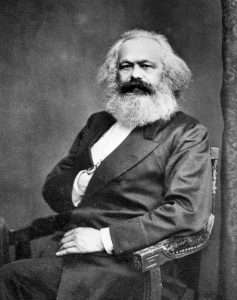
Philosophers like Plato called for this kind of communal system (and Plato’s call for it foreshadowed the thinking and writings of Karl Marx later on). Yet this plan works only in socialists’ minds! Oh, they may sincerely believe that eliminating private property and putting the state in charge of producing and managing everything will create a utopia—but it never will. This idea is a complete fantasy. Socialists actually are pretending to be wiser than God! We are grateful that God showed us a better way.7
The Way Out
We knew we couldn’t continue on as we had. Had we done so, all of us would have starved to death. We discussed it thoroughly among ourselves, considering all our options. In the end, we decided that I as governor, taking into account the advice given by the other leaders among us, would assign a tract of land to each family. Each one, in turn, would be responsible to plant corn and other crops for themselves.
In other words, we ditched the communal system. Our investors simply would have to live with that! What kind of return on their investments would they receive if all of us had starved? We traded the failed system for one that emphasized
-
-
- the benefits of private property and
- the responsibilities of the owner(s) to effectively manage the resources in his/their charge.
-
As we assigned the land, we were mindful that larger families would need more resources, so we made our decisions accordingly. We weren’t thinking about inheritance or other future matters, but mainly about immediate needs. Children who had been orphaned and other single individuals were assigned to families—and so management of work responsibilities would belong strictly to each family unit. Also—and this is key—so would the crops they produced. In this way, laziness naturally would be penalized, and hard work rewarded.

The change was remarkable and immediate! Whereas before the men in our company had looked for excuses not to work and had complained when they did, they now labored willingly and eagerly. More corn was planted than would have been under any other system I or anyone else could have devised. It wasn’t just the men, either! Wives and children also worked in the fields, and they apparently wanted to! Before we adopted this system, urging a woman to till the ground and plant corn was thought to be oppressive and mean.8
The change was remarkable and immediate!
A Path to a Hopeful Future
There’s more. Thanks for your patience as I explain even further. Be assured, though, I’m almost done. In November of 1621, the ship Fortune arrived with about 35 new colonists. The ship brought us mouths to feed, but no supplies; and our rations were cut in half. It wasn’t that we wished hardship on anybody, but the additional needs among us made our task even more challenging.
So it’s easy to see how the arrival of new colonists made us wary. We limped along as best we could until we established private property rights and a free-market system in 1623. Soon after we had changed our approach—around July and August of that same year—100 new colonists arrived on two ships, the Anne and Little James. We wanted them to feel welcome, but it quickly became apparent we needed to clarify some matters with them so no unnecessary misunderstanding would occur.
The colonists who had been around from the beginning worried that when the corn they’d planted ripened, the new members of the colony would expect they would be entitled to some. With so many mouths to feed, there wouldn’t be enough corn to go around.
As I indicated, we’d already adopted the new system, and those who had worked hard to plant their own corn had done so with the understanding that what they harvested would be theirs to enjoy. They preferred to eat the crops they had planted as opposed to being fed from any of the food supplies the ships delivered.
So we reached an agreement. The new arrivals would use the food that had come over with them, and the early members of the colony wouldn’t have access to it, except that for which they bargained, or the food they purchased.

This put everyone’s mind at ease. You see, it wasn’t just the “old-timers” who were worried! The new arrivals actually had been afraid their food would be devoured by the settlers who had been around for a while. Isn’t it interesting how all of us tend to view others—even friends and potential friends—with a mutual kind of skepticism?9
Isn’t it interesting how all of us tend to view others—even friends and potential friends—with a mutual kind of skepticism?
Editor’s note: Don’t let this section mislead you! This incident doesn’t indicate that a free market system breeds selfishness. Not at all! The tendencies to look out for oneself and to view others skeptically are natural. But the “other side of this same coin” is that with enough to go around, generosity can be encouraged and joyfully practiced. When a person has worked hard to meet his own needs and has a surplus, and when he experiences the satisfaction of hard work and the fruit of his labor, he is free to think about others and to give of his own resources to help them and to meet their needs. As Paul wrote in Ephesians 4:28, “Let him who stole steal no longer, but rather let him labor, working with his hands what is good, that he may have something to give him who has need.”
The Dawn of a New Day
After the newcomers joined us, it wasn’t that long until it was time to harvest our crops. We reaped a bountiful harvest that year, certainly because God had been good to us, but also because the members of the colony had worked hard in both planting and harvesting. In fact, we enjoyed more than enough! Some members of the colony even were able to benefit others because they had enough to sell. Also, through their transactions, they managed to benefit themselves as well by making a profit. Having worked hard, they deserved it!
With God’s help, we had turned a corner!10
We knew we had a great deal for which to be grateful, and we celebrated that year, thanking God for all His abundant blessings!11
Despite the hardships of the past, and despite other hardships that were yet to come, the future looked bright!
A new day had dawned!
I shudder to think what would have become of us if we hadn’t ditched socialism!
William Bradford
Governor of the Plymouth Colony
Editor’s note: The events at Plymouth actually represented the second time in the New World socialism was proved unworkable. The settlers at Jamestown had an experience similar to the Pilgrims. Read historian and sociologist Alvin J. Schmidt’s summary of what happened at Jamestown and Plymouth—and the implications of both—here.
Learn More!
To access a six-session Bible study series,
Principles of Economic Liberty: The Biblical Case for Free Enterprise,
visit discoverbedrocktruth.org/freemarketbiblestudy.
Also, you’re invited to visit a page offering three more articles for you to read and enjoy. Two of them further examine the experiences of the Pilgrims and offer additional lessons for us as 21st-century Americans, and another explores what America’s Founding Fathers believed about biblical principles addressing Marxism and about the teachings of Marxism itself.
Copyright © 2019 by B. Nathaniel Sullivan. All rights reserved.
Unless otherwise indicated, Scripture has been taken from the New King James Version®. Copyright © 1982 by Thomas Nelson, Inc. Used by permission. All rights reserved.
Notes:
1Writing about himself and his own people in the third person, William Bradford wrote, “Squanto stayed with them, and was their interpreter, and became a special instrument sent of God for their good, beyond their expectation.” Bradford, William. Of Plymouth Plantation (p. 87). Portcullis Books. Kindle Edition. Edited by Harold Paget. Book II, Chapter I.
2Bradford, William. Of Plymouth Plantation (p. 74-75). Portcullis Books. Kindle Edition. Edited by Harold Paget. Book I, Chapter IX. Go here for more information.
3Larry Schweikart, 48 Liberal Lies About American History (that You Probably Learned in School), (New York: Sentinel, 2008), 178. Schweikart writes, “Of the Mayflower’s 102 Pilgrims who arrived at Plymouth Rock, only 46 remained alive by the following spring.”
4Bradford Smith, Bradford of Plymouth, (New York: J. B. Lippincott Company, 1951), 146-147. For Bradford Smith’s vivid description of the darkest days of the Pilgrims’ first winter at Plymouth, go here.
 5In this interview from CBN, Eric Metaxas, who wrote a book about Squanto, states, “And it just so happens that he [Squanto] grew up on the very spot where they had settled. This was his home that had been abandoned, and now he was back in his village, and they basically adopted him. He had no place to go. They became his family.”
5In this interview from CBN, Eric Metaxas, who wrote a book about Squanto, states, “And it just so happens that he [Squanto] grew up on the very spot where they had settled. This was his home that had been abandoned, and now he was back in his village, and they basically adopted him. He had no place to go. They became his family.”
6Schweikart. Go here for more information.
7Bradford, William. Of Plymouth Plantation (pp. 116-117). Portcullis Books. Kindle Edition. Edited by Harold Paget. Book II, Chapter IV Go here for more information.
8Bradford, William. Of Plymouth Plantation (p. 116). Portcullis Books. Kindle Edition. Edited by Harold Paget. Book II, Chapter IV Go here for more information.
9Bradford, William. Of Plymouth Plantation (p. 124). Portcullis Books. Kindle Edition. Edited by Harold Paget. Book II, chapter IV Go here for more information.
10Bradford, William. Of Plymouth Plantation (p. 124). Portcullis Books. Kindle Edition. Edited by Harold Paget. Book II, chapter IV Go here for more information.
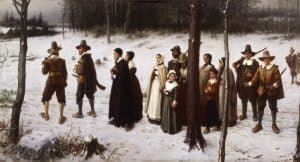
11D. James Kennedy and Jerry Newcombe, What If Jesus Had Never Been Born? (Nashville: Thomas Nelson, 1994), 121-122. Kennedy and Newcombe write,
The result [of the Pilgrims’ adaption of a free market system] was that the following harvest was a tremendous, bountiful harvest, and abundant thanksgiving was celebrated in America. Had they not gone into private enterprise, it is likely the Pilgrims would have died off. Note it well: When socialism was abandoned, Thanksgiving was established! When socialism is reinstated in America, thanksgiving will be abolished! That is the history of America—a lesson that we have all too easily forgotten.
top image: Jennie Augusta Brownscombe, Thanksgiving at Plymouth, 1925
image credit: Plato
photo credit: Plymouth (or Plimouth) Plantation (village)
photo credit: Plymouth (or Plimouth) Plantation (dwelling and fence)
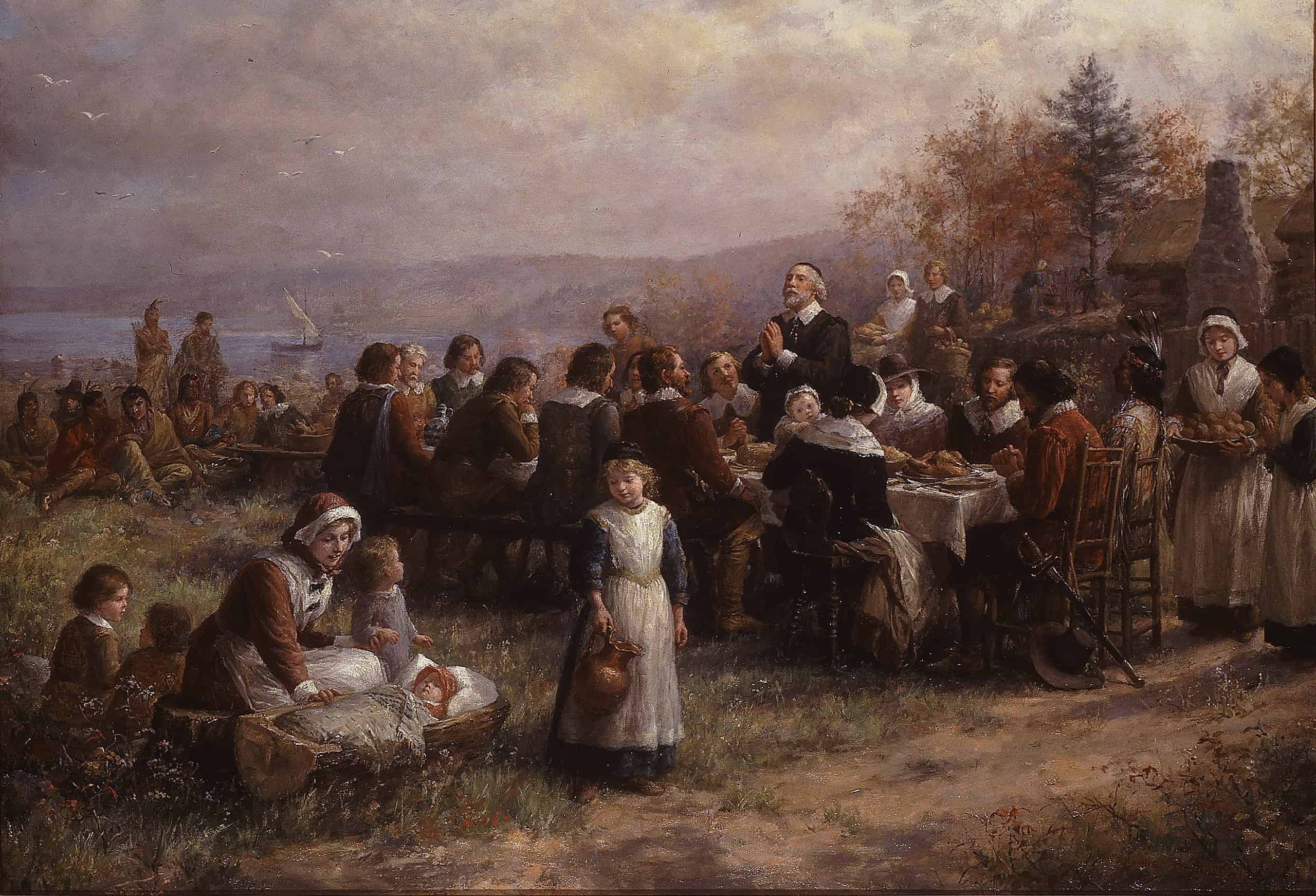

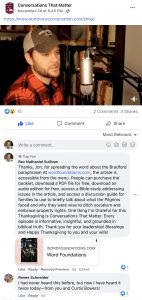
[…] God for Free Enterprise! A Thanksgiving Bible Study Exploring Issues Raised in the article “Ditching Socialism in the New World: A Lesson for 21st-Century […]